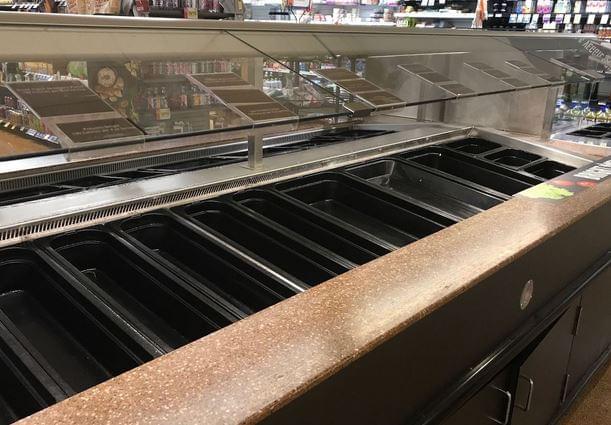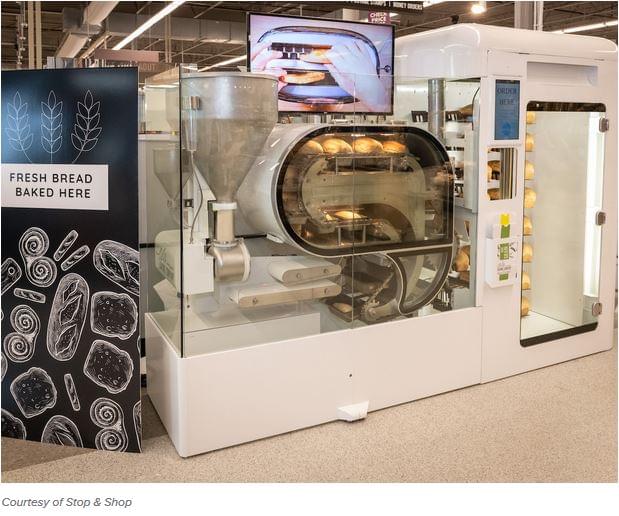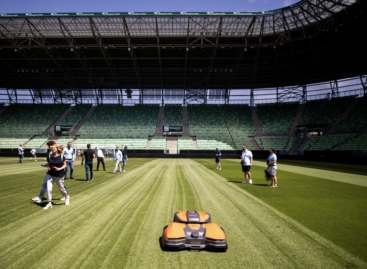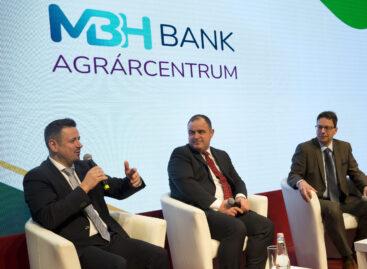Sally, the salad bar savior
The self-service salad bar stations were fresh spots in the supermarkets and catering units. Here, everyone could put together a salad to match their own tastes. As the pandemic forced their shut down, consumers and retailers even more have lost a lot. Salad maker machines can be the solution.

Salad bar crisis
According to Nielsen data, salad bar sales declined 6.5% last year compared to 2018. Now salad bar sales are down nearly 54% so far this year. During a one-week period in mid-June, sales in the department dropped 95.5% compared with last year. To be sure, retailers are desperate to boost sagging prepared food sales and inject life into the parts of their stores that have had to shut down during the pandemic. Many have kept their salad bars closed and piled everything from packaged meals to bottles of alcohol on them. Others, like Publix and Whole Foods, have turned their stations into full-service operations while some, like Balls Foods, have started reopening self-service salad bars with numerous safety steps in place.
The automation revolution
The pandemic forced Heinen’s to shut down its salad bars in March, it dealt a serious blow to the chain renowned for its prepared foods. But rather than wait around for local officials to give the okay for it to resume service — something that may not happen for months — Heinen’s decided to try something new. It brought in Sally.
Standing six feet tall and weighing 750 pounds, Sally is a salad-slinging robot that serves up preset options like Caesar and Cobb along with custom mixes, all with just a few touches on the machine’s digital screen. Developed by San Francisco tech firm Chowbotics, Sally can hold up to 22 different fresh ingredients, including liquids, grains and proteins like chicken, brisket and salmon, all prepared and loaded on-site by Heinen’s workers. Shoppers punch in their selection, and the machine dispenses fresh veggies, lettuce and other ingredients along with a dollop of dressing into a compostable bowl.

The possibility of choice
Heinen’s introduced customers to Sally on Friday at its store in the town of Pepper Pike, Ohio, just a few miles from its corporate office. The green-and-white machine appears at the end of the store’s salad bar station, which is now filled up with beverages along with packaged salads and sides, creating a contactless meal destination. Heinen’s has programmed the system with five standard salad selection and one custom option, all for $7, with the goal of including more mix-and-match selections over time as shoppers get used to operating the machine.
Later this month, Chowbotics will roll out an app where shoppers can place their order and get a QR code to scan at the machine, making their salad prep fully touch-free. The point is the possibility of individual selection, which is becoming increasingly important to consumers. At the same time, Heinen’s also retains in its assortment the 18 types of pre-prepared salads introduced during the pandemic to meet “grab-and-go” needs.
Robotic future
At Heinen’s, Sally can only produce around a fourth of the 150 or so salads stores used to sell during a typical lunch hour. But the machine portions out ingredients, which limits shrink. And it can charge extra for premium ingredients, which allows retailers to offer items like salmon and lobster that couldn’t go in a traditional salad bar.
Sally is also thoroughly connected. It delivers customer data to retailers, letting them know which ingredients are selling best, and at what times. Whenever one of the machine’s cannisters of ingredients is running low, it sends a text message to a store employee.
Retailers are starting to weave automation into their operations, from robotic online fulfillment to floor-cleaning machines and shopping assistant robots. The machines also have to make sense economically. They have to sell enough to scale and recoup their upfront cost — $35,000 apiece, in Sally’s case. Automation promises labor savings and increased speed and precision, but labor advocates argue robots will cut loose hundreds of thousands of workers over the next several years.

Related news
A garden robot can also be a solution to the labor shortage
Customers are increasingly looking for premium, automated solutions in garden…
Read more >X5 Group introduces robotic automation solutions in distribution centres
Russia’s X5 Group has launched a series of robotics projects…
Read more >Efficiency, AI and sustainability: MBH Bank and MEGOSZ work together for the development of the agricultural machinery market
MBH Bank and the National Association of Field Machine Manufacturers…
Read more >Related news
The Joy of Giving! – SPAR stores collect non-perishable food for people in need
The Hungarian Maltese Charity Service and SPAR Hungary have launched…
Read more >Technological advancements and business travel
The latest research from International Workplace Group (IWG), the leading…
Read more >K&H: a gift, but what and from which store?
When it comes to Christmas gift-giving, clothes are the most…
Read more >






